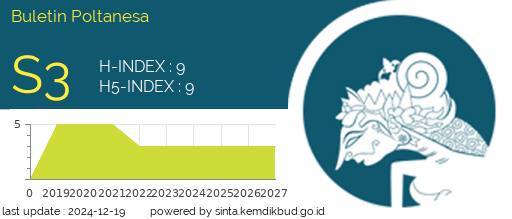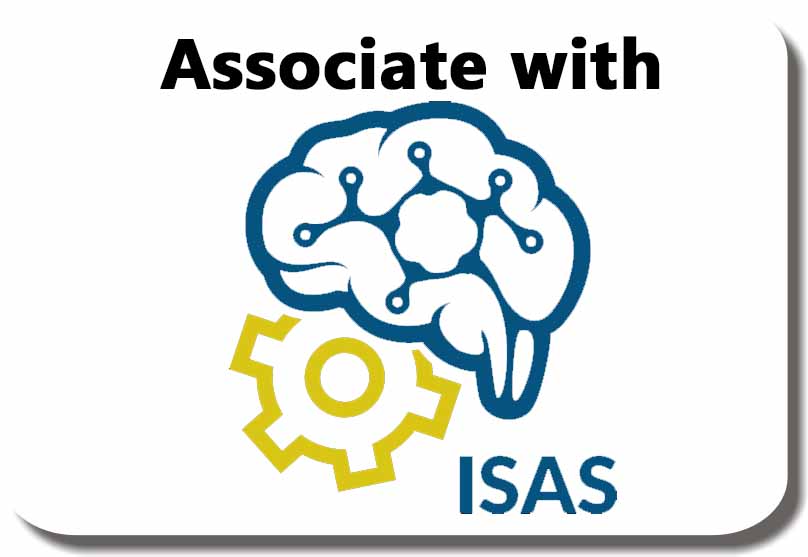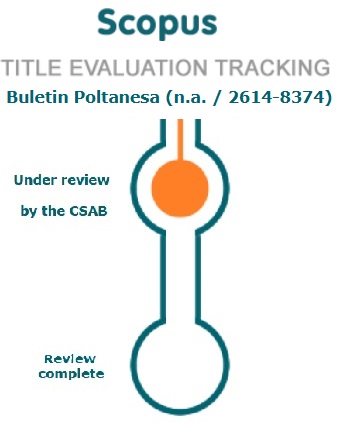Integration of Philosophy in the Implementation of Islamic Education Management from the Perspective of the Quran
DOI:
https://doi.org/10.51967/tanesa.v24i2.2949Keywords:
management, philoshopy, integrationAbstract
In the face of various challenges stemming from the advancement of science and specialization across disciplines, the continual evolution of knowledge endures, seamlessly transitioning from one era to the next. The progression of knowledge development would be rendered impossible without human involvement or capability. The Qur'an provides guidance and ethical teachings that hold the potential for seamless integration into the decision-making processes, strategic planning, and governance of educational institutions. Delving deeper into the integration of philosophy into the management of Islamic education becomes imperative to gauge the depth of comprehension through the lens of the Qur'an. This research uses qualitative methods, examining Quranic verses related to integrating philosophy into Islamic educational management. By means of a thorough literature review and an exploration of pivotal Qur'anic verses, encompassing Surah Al-Jasiyah verse 20, Surah Al-Qamar verse 17, Al-Baqarah verse 2, Surah Yunus verse 3, Surah Al-Ra’du verse 2, Surah Al-A’raf verse 29, Surah Al-Ahzab verse 24, Surah An-Nisa verse 58, Surah Ar-Rahman verses 7-9, Surah Al-Baqarah verse 286, Surah Al-Hasyr verse 18, Surah Ali Imran verse 103, Surah Al-Kahf verse 2, Surah Hud verse 117, and Surah Ash-Shura verse 6, the research findings lead to the conclusion that the philosophical underpinning in the management of Islamic education, when harmoniously integrated from the perspective of the Qur'an, can give rise to a comprehensive and all-encompassing approach.
References
Abusama, Q., Asiah, S., & Yasin, Z. (2020). Actuating Pendidikan Dalam Pandangan Al-Qur’an Dan Hadits. Jurnal Al Himayah, 4(2), 298–310.
Adla, D. P. W., Wardhana, K. E., Syarif, I. M., Amelia, K., & Norlita, N. (2020). Peran Pendidikan Multikultural di SMA Negeri 17 Samarinda dalam Menerapkan Sifat Toleransi Beragama. EDUCASIA: Jurnal Pendidikan, Pengajaran, Dan Pembelajaran, 5(3), 177–184.
Ahyani, H., & Abduloh, A. Y. (2021). Prinsip-Prinsip dasar Manajemen Pendidikan Islam dalam Al-Quran Al-Quran. Jurnal Islamic Education Manajemen, 6(1), 37–46.
Arikunto, S. (2014). Prosedur Penelitian: Suatu Pendekatan Praktik. PT. Bina Aksara, Jakarta. https://books.google.co.id/books?id=6PKbAQAACAAJ
Azhar, C. (2017). Manajemen pengembangan pendidikan Islam perspektif al-Quran. Tarjih: Jurnal Tarjih Dan Pengembangan Pemikiran Islam, 14(1), 1–18.
Darussalim, D., Fahrezi, M., Yogaswara, D., Azhari, M. T., Intan, N., & Syahri, P. (2023). Filsafat Manajemen Pendidikan Islam: Dasar-Dasar Filsafat Dalam Manajemen Pendidikan Islam.
Fathurrahman. (2014). Esensi Manajemen Pendidikan Islam. Teras.
Fauzi. (2013). Tafsir Aceh. Ushuluddin Publishing.
Goffar, A. (2016). Manajemen dalam Islam (perspektif al-Qur’an dan hadits). Islamic Akademika: Jurnal Pendidikan Dan Keislaman, 8(1), 35–58.
Haromaini, A. (2018). Manusia dan Keharusan Mencari Tahu (Studi Relasi Manusia, Al-Qur’an dan Filsafat). Pelita: Jurnal Penelitian Dan Karya Ilmiah, 18(2), 202–215.
Hidayah, H., Vriyatna, M., & Mak’ris, A. (2021). Teori Manajemen Pendidikan Islam. Jurnal Mumtaz, 1(1), 44–52.
Hidayat, R., & Nasution, H. S. (2016). Filsafat Pendidikan Islam: Membangun Konsep Dasar Pendidikan Islam.
Hidayat, R., & Wijaya, C. (2017). Ayat-ayat alquran tentang manajemen pendidikan islam.
Marisa, M. (2021). Filosofi Manajemen Pendidikan Islam dalam Perspektif Al-Qur’an. Al-Idaroh: Jurnal Studi Manajemen Pendidikan Islam, 5(1), 44–64.
Mubin, F. (2020). Perencanaan dan Manajemen Pendidikan.
Muntafi, A. Z. (2019). Manajemen Pendidikan Islam Perspektif Alquran. Idrak: Journal of Islamic Education, 1(2), 103–114.
Nurmayuli, N., Harmaini, K., Rijal, Y., Jannah, R., Khaira, M., Lubis, T. H., & Nurhidayah, B. (2023). Ontologi Filsafat Manajemen Pendidikan Islam. Desultanah-Journal Education and Social Science, 1(2), 84–106.
Rahman, M. T. (2020). Filsafat Ilmu Pengetahuan. Prodi S2 Studi Agama-Agama UIN Sunan Gunung Djati Bandung.
Rofiq, M. N. (2018). Peranan filsafat ilmu bagi perkembangan ilmu pengetahuan. FALASIFA: Jurnal Studi Keislaman, 9(1), 161–175.
Safliana, E. (2020). Al-Qur’an Sebagai Pedoman Hidup Manusia. Jurnal Islam Hamzah Fansuri, 3(2).
Salim, A. (2017). Implikasi Aliran Filsafat Pendidikan Islam Pada Manajemen Pendidikan. LITERASI (Jurnal Ilmu Pendidikan), 5(1), 13–28. http://dx.doi.org/10.21927/literasi.2014.5(1).13-28
Satriyadi, S., Intan, N., Wijaya, S., Azmi, F., & Syukri, M. (2023). Manajemen Pendidikan dalam Perspektif Filsafat Islam. Islamic Management: Jurnal Manajemen Pendidikan Islam, 6(01).
Syadzili, M. F. R. (2019). Ontologi Manajemen Pendidikan Islam dalam Konstruksi Al-Qur’an dan Al-Hadits. Tabyin: Jurnal Pendidikan Islam, 1(2), 87–102. https://doi.org/10.52166/tabyin.v1i2.23
Syahrani, S. (2019). Manajemen Pendidikan Dengan Literatur Qur’an. Darul Ulum: Jurnal Ilmiah Keagamaan, Pendidikan Dan Kemasyarakatan, 10(2), 191–203.
Syaiful Sagala. (2017). Konsep dan Makna Pembelajaran Untuk Membantu Memecahkan Problematika Belajar dan Mengajar. Alfabeta.
Yani, A. (2020). Tujuan Inti Pesan Wahyu Al-Qur’an. Jurnal STIU Darul Hikmah, 6(1), 30–44.
Yasin, V., Zarlis, M., & Nasution, M. K. (2018). Filsafat Logika Dan Ontologi Ilmu Komputer. JISAMAR (Journal of Information System, Applied, Management, Accounting and Research), 2(2), 68–75.
Zaim, M. (2019). Tujuan Pendidikan Perspektif Al-Quran Dan Hadits (Isu Dan Strategi Pengembangan Pendidikan Islam). Muslim Heritage, 4(2).
Downloads
Published
How to Cite
Issue
Section
License
Copyright (c) 2024 Buletin Poltanesa

This work is licensed under a Creative Commons Attribution-ShareAlike 4.0 International License.
The copyright of this article is transferred to Buletin Poltanesa and Politeknik Pertanian Negeri Samarinda, when the article is accepted for publication. the authors transfer all and all rights into and to paper including but not limited to all copyrights in the Buletin Poltanesa. The author represents and warrants that the original is the original and that he/she is the author of this paper unless the material is clearly identified as the original source, with notification of the permission of the copyright owner if necessary.
A Copyright permission is obtained for material published elsewhere and who require permission for this reproduction. Furthermore, I / We hereby transfer the unlimited publication rights of the above paper to Poltanesa. Copyright transfer includes exclusive rights to reproduce and distribute articles, including reprints, translations, photographic reproductions, microforms, electronic forms (offline, online), or other similar reproductions.
The author's mark is appropriate for and accepts responsibility for releasing this material on behalf of any and all coauthor. This Agreement shall be signed by at least one author who has obtained the consent of the co-author (s) if applicable. After the submission of this agreement is signed by the author concerned, the amendment of the author or in the order of the author listed shall not be accepted.









